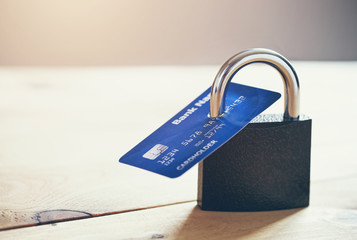

Tips, for Staying Safe While Shopping for Second Hand Goods
Exploring the world of second hand products can lead to discovering treasures saving money and making an impact on the environment. However there are risks and challenges to navigate. To have an enjoyable shopping experience it's crucial to take precautions and stay informed about pitfalls. This guide offers advice for navigating the second hand market.
1. Conduct Research Before Making a Purchase
Prior to buying anything it's vital to conduct research on the item you intend to buy. This involves learning about its price range issues that may arise and how to identify authentic products.
Research Tips;
Price Range; Gather information from sources to determine the cost of the item.
Common Problems; Seek details on issues or flaws associated with the product.
Authenticity Features; Familiarize yourself with distinguishing features of items so you can spot any discrepancies.
2. Opt for Trustworthy Sellers
Whether you're shopping online or in brick and mortar stores it's wise to choose sellers, with reputations. This decreases the chances of ending up with stolen goods.
Tips, for Finding Reliable Sellers;
1. Reviews and Ratings; Seek out sellers who have received feedback and high ratings from buyers.
2. Return Policy; Verify if the seller provides a return policy or warranty for the item being sold.
3. Trusted Platforms; Utilize platforms such as eBay, Craigslist or local thrift stores that conduct seller verification processes.
Checking the Product Carefully
When purchasing second hand items it's crucial to examine the product to ensure it aligns with your expectations and's in good working condition.
Key Inspection Points;
Appearance; Look for any damages, wear and tear or signs of repair work.
Functionality Test; Test the product to confirm that it functions properly. For devices power them on. Check all features.
Documentation Review; Request any documents, receipts or proof of purchase.
Selecting Secure Meeting Locations
When meeting a seller in person to inspect or buy an item, opt for public settings.
Safety Measures for Seller Meetings;
Public Venues; Choose lit places like cafes or shopping malls, for meetings.
Bring a Companion; Whenever feasible have someone accompany you to ensure added safety during transactions.Make sure to inform a friend or family member about your plans and who you're meeting before heading out. When negotiating for second hand items approach it with respect and an understanding of the items worth.
Negotiation Tips;
Be courteous; Always negotiate politely and avoid making offers.
Know the market; Use your research to back up your offer with factual information, about the items value.
Have a budget; Understand your price limit and stick to it.
When dealing with items like designer goods or electronics verifying their authenticity is vital.
Tips for Authenticity;
Check for brand marks, serial numbers and other identifying features.
Consider getting an appraisal for high end items.
Compare the item with images and descriptions from the website.
Selecting payment methods can safeguard you against fraud. Provide solutions if something goes amiss.
Tips for Secure Payments;
Cash transactions are often safest for face to face transactions; ensure you count the money in front of the seller.
Opt for payment options, like PayPal that offer buyer protection.Avoid Using Wire Transfers; It's best to steer of wire transfers or money orders since they don't offer protection.
Watch Out for Scams;
The second hand market is full of scams. Being familiar, with tactics can help you steer clear of becoming a victim.
Scams to Be Cautious Of;
If It Seems Too Good to Be True; If a deal appears good to be true it likely is. Stay skeptical of prices.
Beware of Fake Listings; Some scammers post listings to collect deposits without delivering the product.
Guard Against Identity Theft; Be careful when sharing information with sellers.
Understand Return Policies;
in the second hand market some sellers have return policies in place. Knowing these policies can prevent you from making purchases.
Tips for Return Policies;
Clarify Terms; Make sure you fully grasp the terms regarding returns before making a purchase.
Time Frame Matters; Understand the timeframe within which you can return an item.
Condition Requirements;. Understand the conditions required for returns.
Environmental and Ethical Considerations;
Buying hand isn't about saving money; it's also an environmentally and ethically responsible choice.
Environmental Advantages;
Reduce Waste; Purchasing second hand items helps decrease waste. Reduces the demand, for products.
Decrease Carbon Footprint;
Reducing the impact linked to producing and transporting goods is one of the advantages of opting for second hand items.
Ethical Considerations;
Support Local Businesses; Purchasing from thrift stores helps boost businesses and the local economy.
Fair Trade; Verify that the products you purchase were made under labor conditions.
Conclusion
Engaging, in the second hand market brings about advantages along, with its set of difficulties. By conducting research selecting sellers inspecting products diligently and using secure payment methods you can mitigate risks and enjoy a secure shopping experience. Being mindful of scams understanding return policies and considering ethical implications will enrich your second hand shopping experiences. Armed with these suggestions you can confidently navigate the world of second hand goods while making purchases that benefit both yourself and the planet.